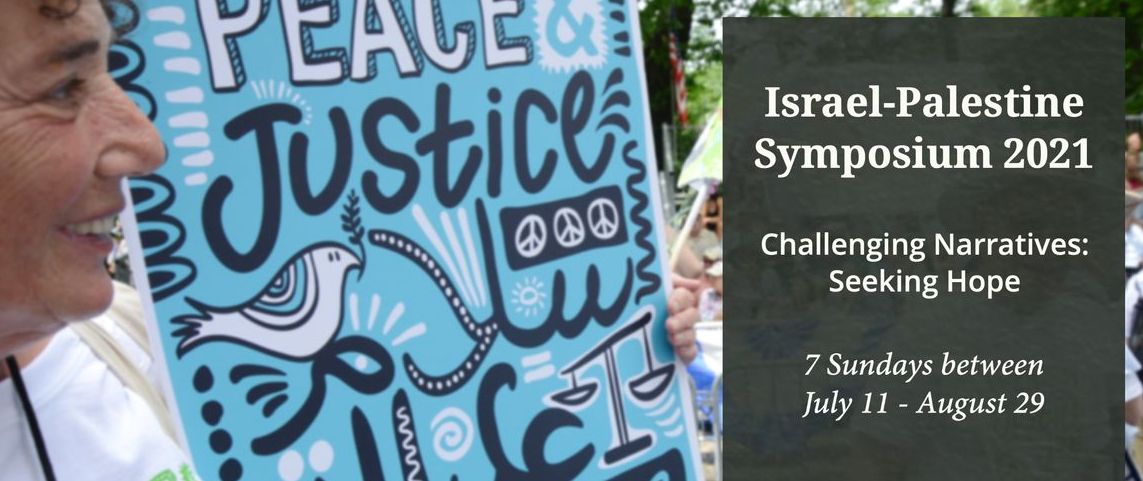
.
.
![]()
Meet young Israeli & Palestinian activists.
Dialogue with Knesset members.
Visit Gaza, the West Bank, East Jerusalem & a Bedouin Camp.
Discover NGOs working for social justice, equality & peace.
Enjoy artists who are creative agents of peace.
Explore how Israelis & Palestinians envision the future.
 .
.
General Information
The Israel-Palestine Symposium took place via Zoom over twelve, two- hour sessions (from 11am – 1pm ET & 1:30pm – 3:30pm ET) on seven Sundays:
❖ July 11 ❖ July 18 ❖ July 25
❖ August 8 ❖ August 15 ❖ August 22
❖ August 29: Bonus Session (for participants who registered for full Symposium)
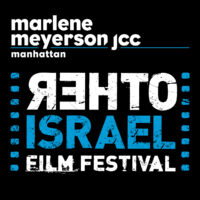 Pre-Symposium Film: All attendees who register prior to July 5 received a link to watch a pre-Symposium film about the Israeli-Palestinian struggle: The Tinderbox, soon to be released. This sneak preview film was exclusively available Monday, July 5 – Saturday, July 10 to view at leisure and there was also an interview/Q&A with the director, Gillian Mosely, and moderator Isaac Zablocki (Director of the Other Israel Film Festival at the Marlene Meyerson JCC Manhattan) on Thursday, July 8, at 12:30pm ET.
Pre-Symposium Film: All attendees who register prior to July 5 received a link to watch a pre-Symposium film about the Israeli-Palestinian struggle: The Tinderbox, soon to be released. This sneak preview film was exclusively available Monday, July 5 – Saturday, July 10 to view at leisure and there was also an interview/Q&A with the director, Gillian Mosely, and moderator Isaac Zablocki (Director of the Other Israel Film Festival at the Marlene Meyerson JCC Manhattan) on Thursday, July 8, at 12:30pm ET.
To allow for substantive discussion, each session was limited to 50 participants and was divided as follows:
-
-
- 45-minute presentations by the invited guest speakers
- 45-minute direct Q&A conversation with the speakers
- 30-minute discussion among Symposium participants
-
.
![]()
Thank you to our
Sponsors
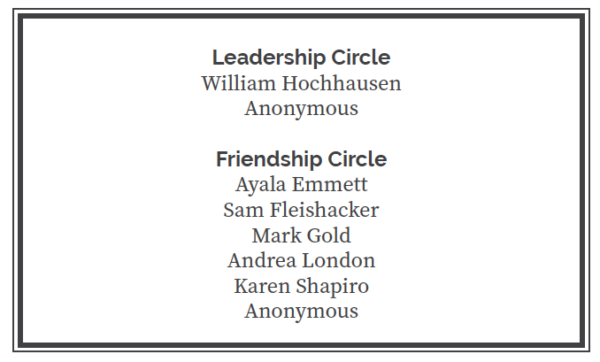
.
.
![]()
Pre-Symposium Film
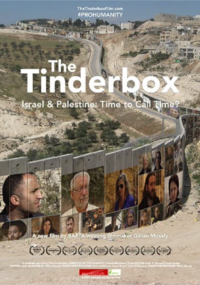 A thought-provoking examination of both sides of the Israeli-Palestinian conflict, from its catalyst to why it still rages, to what needs to happen for it to stop.
A thought-provoking examination of both sides of the Israeli-Palestinian conflict, from its catalyst to why it still rages, to what needs to happen for it to stop.
The Tinderbox combines ancient and more recent history, geopolitical problems (racism, inequality, immigration and fake truths), with the deeply personal journey of the director, Gillian Mosely. She is forced to challenge everything she was taught about the conflict in Israel and Palestine.
The film provides context and shows how history continues to play out in people’s daily lives on all sides, empowering audiences to look at conditions with new eyes.
![]()
Sunday, July 11, 2021
Visit to the Knesset
SESSION #1: 11:00am – 1:00pm ET [SOLD OUT]
Voices from the Governing Coalition
MK Inbar Bezek (Yesh Atid)
MK Ghaida Rinawie (Meretz)
MK Guilad Kariv (Labor)
MK Sa’id al-Harumi (Ra’am)
MK Yossi Shain (Israel Beteinu)
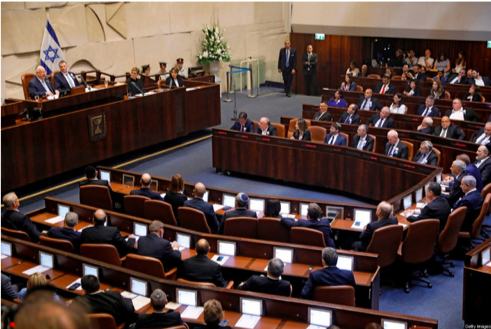
We will visit with members of the Knesset who represent parties in the current coalition. We will ask them for their views on some of the key issues of the day and how these views attest to their vision for the future of Israel. Among the issues to be explored: a path to peace with the Palestinians; the future of settlements on the West Bank; challenges to Israeli democracy; and equality for Palestinian citizens of Israel in light of the 2018 Nation-State Bill.
SESSION #2: 1:30pm – 3:30pm ET
Voices from the Left: Should the Future Include a Jewish-Arab Party
Dani Filc (Standing Together)
Maha Karkabi Sabbah (Ben Gurion University)
MK Mossi Raz (Meretz)
Dov Khenin – Former MK (Hadash)
The left-leaning Labor party, headed initially by David Ben-Gurion, governed Israel for nearly the first three decades of its existence. Since that time, with brief interludes, right-wing governments have held sway. Today’s left in Israel is weaker than at any time in its history. At this same moment, representatives of Arab parties have come to play an increasingly important role in decisions regarding Israel’s leadership. Several Knesset members and political analysts on the left believe that only a Jewish-Arab party—one based on full equality—can bring the left to power. Discussions on the ground have been held on such an initiative. Others see creation of such a party as unrealistic; if it was actually formed, it would be unable to breathe new life into the left. We will hear from speakers representing various positions regarding the current debate.
Sunday, July 18, 2021
Can Israel be Both Jewish and Democratic?
SESSION #3: 11:00am – 1:00pm ET
Living with the Nation-State Law and Other Forms of Discrimination: Voices from Palestinian Citizens of Israel
Mohamad Darwashe (Givat Haviva)
Jafar Farah (Mossawa Center)
MK Gabi Lasky (Meretz)
Palestinian citizens of Israel will be invited to speak about discrimination in their daily lives. Questions will be asked including how Israel, as the State of the Jewish People, can realize full equality for all its citizens. Can there truly be an Israel that is a “shared society?” Speakers will address, among other Israeli laws and practices, the 2018 Nation-State Bill, that claims: “the right to exercise national self-determination” in Israel “is unique to the Jewish people.” Our presenters will reflect on whether the current lack of equal rights for the Palestinian citizens of Israel is something that can be remedied or whether there is an inherent contradiction between Israel serving as both a fully democratic and a Jewish state. We will also ask about the ramifications of downgrading the status of the Arabic language.
SESSION #4: 1:30pm – 3:30pm ET
The Growth of the Religious Right in Israel: A Threat to a Democratic Israel?
Prof. Rachel Elior (Hebrew University)
Tomer Persico (Shalom Hartman Institute)
Leah Shakdiel (Religious Feminist)
Uri Zaki (Exec. Board, Meretz)
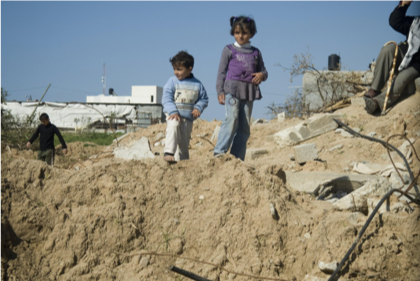
Credit: Daniel Dimitrov
Israel has become increasingly religious; the demographics alone portend a future in which the influence of the religious right will undoubtedly strengthen. We will hear from speakers who regard some positions taken by the growing religious right as threats to Israeli democracy, including mandated exposure to Jewish religious teachings and practices both within the IDF and within State schools, as well as the nearly three quarters-of-a- century dominance of the Orthodox Rabbinate over life-passage events. Also to be explored is a counter movement: the growing influence of Reform and Conservative Judaism, which envisions a future where religious matters are no longer subject to the sole authority of the Rabbinate.
.
![]()
Sunday, July 25, 2021
Occupation and Displacement
SESSION #5: 11:00am – 1:00pm ET
Visits to sites of a deepening occupation and displacement: Sheikh Jarrah in East Jerusalem and Al Araqib in the Negev
Aziz-Al-Tory (Resident, Al Araqib, Bedouin village in the Negev)
Daniel Seidmann on Sheikh Jarrah in East Jerusalem
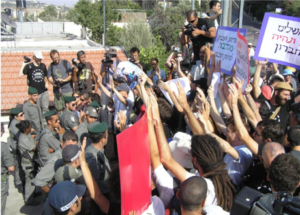 If one were to ask where they could visit prime sites of Israel’s deepening occupation, one might first respond by pointing to a district in East Jerusalem–Sheikh Jarrah–marked by the growing eviction of Palestinians by Israeli Jewish settlers who move into their emptied homes. Evictions in Sheikh Jarrah contributed to a list of several provocations leading to the outbreak of the recent Gaza War. One might then suggest visiting the Bedouin village of Al Araqib, repeatedly demolished by the Israeli government and rebuilt by its remaining Palestinian residents. Although Al Araqib is located within Israel rather than in the West Bank, it can be understood to suffer from a similar pattern of forced displacement of Palestinians in order to have a property in question set aside for Jews. We will visit these two sites and hear from speakers intimately familiar with the eviction process.
If one were to ask where they could visit prime sites of Israel’s deepening occupation, one might first respond by pointing to a district in East Jerusalem–Sheikh Jarrah–marked by the growing eviction of Palestinians by Israeli Jewish settlers who move into their emptied homes. Evictions in Sheikh Jarrah contributed to a list of several provocations leading to the outbreak of the recent Gaza War. One might then suggest visiting the Bedouin village of Al Araqib, repeatedly demolished by the Israeli government and rebuilt by its remaining Palestinian residents. Although Al Araqib is located within Israel rather than in the West Bank, it can be understood to suffer from a similar pattern of forced displacement of Palestinians in order to have a property in question set aside for Jews. We will visit these two sites and hear from speakers intimately familiar with the eviction process.
SESSION #6: 1:30pm – 3:30pm ET
How does the Occupation Erode Democracy within the Green Line?
Adi Granot (Annexation Project Manager, Zulat)
Gideon Levy (Columnist, Haaretz)
Hagit Ofran (Settlement Watch, Peace Now)
Many Israelis believe that Israel cannot be an occupier without the occupation turning back upon itself and effecting what is happening within the Green Line. We will invite speakers from NGOs dedicated to the preservation of Israeli democracy to weigh in on this subject. Discussion topics may include attacks on the independence of the Supreme Court; attempts to prohibit funding of liberal NGOs by foreign governments; and the outlawing of school visits by organizations “whose activity contradicts in a significant and serious manner the objectives of state education.”
![]()
Sunday, August 8, 2021
Peacemaking through Environmental Activism and the Arts
SESSION #7: 11:00am – 1:00pm ET
Resolving the Conflict While Healing the Earth
Gidon Bromberg (Director, EcoPeace Israel)
Nada Majdalani (Director, EcoPeace Palestine)
Yana Abu Talab (Director, EcoPeace Jordan)
Moderator: Karen Shapiro (Vice President, PPI)
We will invite speakers from environmental groups that include both Israeli and Palestinian participants to reflect on the challenges of a shared environment and the implications of such joint work on peacemaking. They will address threats to the environment and talk about their everyday experiences in working together. Among the issues to be explored: an equitable distribution of water resources and a range of transboundary projects that address preservation of natural resources and biodiversity threatened by pollution that knows no borders.
SESSION #8: 1:30pm – 3:30pm ET
Artist as Agents of Peace
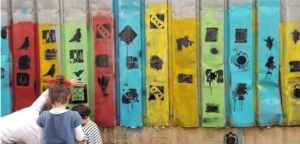
Credit: הרשוא ןייד
The arts play a vital role in creating hope and understanding between Israelis and Palestinians; the arts can speak to audiences in ways that discursive speech cannot. Israeli and Palestinian artists often include conflict resolution in their work. We will meet some of these artists and learn first-hand how their work leads toward reconciliation between the two peoples.
![]()
Sunday, August 15, 2021
Settlers and Resisters
SESSION #9: 11am – 1pm ET
Visits with Three Settlers on the West Bank
Michal Froman
Myron Joshua
Rabbi Yakov Nagen
It is important for those who wish to understand what is happening in Israel and Palestine to know more about the settler community. Of course, the more than 600,000 settlers on the West Bank and East Jerusalem do not speak in one voice. Some have decided to settle in the Territories to benefit from economic incentives; many—mainly Haredim—have settled where they were informed there is room for their large families; and many have come for nationalist/religious reasons. We will visit two settlers who have come, as Jews, for ideological reasons, but whose understanding of what the tradition calls for differs in some respects.
SESSION #10: 1:30pm – 3:30pm ET
Refusing Military Service: Resisters and Their Critics Speak Out
Hillel Garmi
Ishai Menuchin
Avshalom (Abu) Vilan
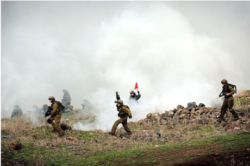 Refuseniks will speak about their decision to refuse service in the IDF. Those objecting to military service have different reasons for their refusal, including those who only refuse to serve in the occupied territories. We will also invite a speaker, identified in some measure with centrist camp in Israel, who will argue for the obligation to serve in the IDF.
Refuseniks will speak about their decision to refuse service in the IDF. Those objecting to military service have different reasons for their refusal, including those who only refuse to serve in the occupied territories. We will also invite a speaker, identified in some measure with centrist camp in Israel, who will argue for the obligation to serve in the IDF.
![]()
Sunday, August 22, 2021
Hearing Human Rights Abuse from the Group Up
SESSION #11: 11:00am – 1:00pm ET
Transforming Swords into Plowshares: Peacemaking and Reconciliation
Bassam Aramin (The Parents Circle – Families Forum)
Robi Damelin (The Parents Circle – Families Forum)
Rabbi Andrea London (Moderator, Board Member – Partners for Progressive Israel)
This session brings together two NGOs that exemplify Israelis and Palestinians working together to break the cycle of violence afflicting the region for almost a century. Combatants for Peace models a bi-national community of those who at one time stood opposed to one another on the battlefield, now active in the joint struggle for peaceful coexistence based on two sovereign states. The Parents Circle—Families Forum consists of more than 600 Israeli and Palestinian families who have paid the ultimate price in living amidst violent conflict: the loss of a close family member. Refusing to take the path of revenge, members of the Circle speak in pairs about the need both to reach a political agreement now in order to end the violence but also to embark on the longer-range work of reconciliation that will make peace sustainable.
SESSION #12: 1:30pm – 3:30pm ET
Life Under Occupation and the Healing Workers
Rami Aman (Palestinian journalist and peace activist, Gaza)
Hannah Barag (Machsom Watch)
Mazin Qumsiyeh (Palestinian author)
Judith Ronen (A Road to Recovery)
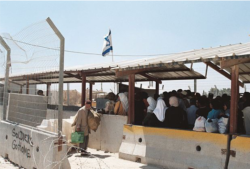
We will visit with ordinary Palestinian citizens living under occupation. (Though Israel withdrew its settlers from Gaza in 2005, it maintains control of most entrances and exits via land, as well as those by sea and air. Our digital symposium allows us access to Gaza that would otherwise be denied). We will hear about the roadblocks—both literal and figurative—that permeate the day to day lives of Palestinians. We will focus on two major instances of human rights abuse: checkpoints, which constitute a case study in the workings of the occupation; and the daily trials of ordinary Palestinians denied the right to move about freely, sometimes reaching a critical point when emergencies in the healthcare arena occur. Issues surrounding the accessibility of healthcare to Palestinians—especially with regard to vaccinations—will also be explored.
.
![]()
BONUS SESSIONS
(for sponsors and participants who registered for all 12 sessions)
Sunday, August 29, 2021
The Future Envisioned: Ideas for Confederation and Key Remaining Questions
SESSION #13: 11:00am-1:00am ET
Two States, With a Difference: Peace Via Confederation
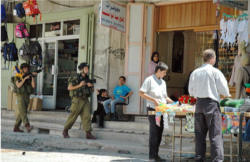
Several varieties of the two-state solution exist. Some people advocate for strict separation (i.e., hard borders); others have different ideas. We will hear from members of the NGO A Land for All that advocates for two sovereignties within one homeland. In other words, there would be two states with two governments, but borders would be permeable in the sense that Israelis and Palestinians would be free to move about the entire land from the Mediterranean to the Jordan River. Some confederation advocates speak of freedom for members of each people to reside within either sovereignty. We will explore these ideas for peace in-depth with representatives of the leading NGO advocating for confederation.
SESSION #14: 1:30pm-3:30pm ET
Participants’ Voices Engage Political Leaders
Having spent many hours together over a seven-week period, Symposium participants will have a unique opportunity during this final session to bring our new knowledge to bear in dialogue with leading Israelis and Palestinians. We will first ask ourselves what most important questions remain to be asked regarding all that we have heard during our weeks together. We’ll then have the chance to pose queries to several political leaders in the region. Although we have had the chance to ask questions throughout the course of the Symposium, this final session will allow participants to focus on the issues that have become or still remain the most vital to them.
.
Registration Information
Space is limited to 50 participants per session.
We recommend signing up early to secure your spot!
FULL PROGRAM
$180 – All 12 sessions (2 sessions/day on 6 days) + 2 bonus day sessions + 2 films
INDIVIDUAL SESSIONS
$20 – each session (also includes both films)
SPONSORSHIP LEVELS
The 2021 Israel-Palestine Symposium costs are greater than these fees will cover. Support this important and timely program by becoming a Sponsor today.
As a Sponsor, you can attend all 12 Symposium sessions, the 2 bonus sessions plus watch the 2 films. You will also be acknowledged at each session, in our promotional materials, e-blasts, social media and on our website!
$15,000 – Founder’s Circle
$10,000 – Producer’s Circle
$5,000 – Patron’s Circle
$3,000 – Advocate’s Circle
$1,000 – Leadership Circle
$500 – Friendship Circle
VIDEO RECORDINGS
Unable to attend the live sessions? You can register to watch private video recordings of the full program, or for individual sessions! The recordings will be available the day after the live session ends.
$100 – All 12 sessions + 2 bonus day sessions
$10 – each individual session
PRE & POST-SYMPOSIUM FILMS
Sign up for the full program or for any individual session by July 5 and receive access to The Tinderbox, our pre-symposium film. All registrants will also have access to view our post- Symposium film, TBD.
.
